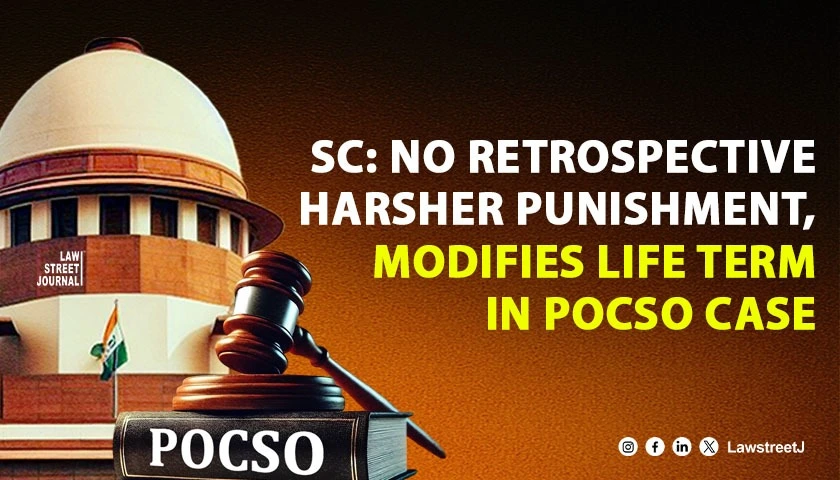NEW DELHI: The Supreme Court on Friday said harsher penalty cannot be imposed with retrospective effect as there is clear and absolute the constitutional bar against it.
The apex court clarified the legal position while upholding the conviction of a man in a sexual assault case of a female child.
Dealing with an filed by Satauram Mandavi from Chhattisgarh, a bench of Justices Vikram Nath and Sandeep Mehta modified his sentence to life term instead of imprisonment till the remainder of natural life.
The bench noted the sentence of “imprisonment for life, meaning remainder of natural life,” as per the amended provision, did not exist in the statutory framework on May 20, 2019, the date of the incident.
"Under the unamended Section 6 of the POCSO Act, the maximum punishment permissible was imprisonment for life in its conventional sense and not imprisonment till the remainder of natural life," the bench said.
The imprisonment of life normally extends to 14 years in jail.
In the case, the court said, the trial court, in applying the enhanced sentence introduced by the 2019 Amendment to Section 6 of the POCSO Act, has effectively subjected the appellant, to a punishment greater than that which was permissible under the law in force at the time of commission of the offence which is clearly violative of the bar contained in Article 20(1) of the Constitution.
The appellant was aggrieved with the Chhattisgarh High Court's judgment of September 5, 2023, which dismissed his plea against the trial court's November 30, 2021 judgment of conviction and sentence for committing rape upon a five-year-old girl on May 20, 2019.
The High Court refused any leniency as the victim was a five-year-old child and the crime committed was of a grave and heinous nature.
Partly allowing the appeal, the court examined the point of sentence only, having found no merit to challenge to conviction.















